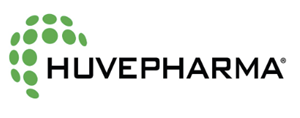The effects of duck vaccination against HPAI in France
In a new study published in bioRxiv preprint (not yet peer-reviewed), discusses the promising effects of a duck vaccination campaign against highly pathogenic avian influenza (HPAI) H5 clade 2.3.4.4b in France. France implemented a vaccination campaign for domestic ducks using inactivated vaccines and mRNA vaccines, with over 35 million ducks receiving two doses and 1.5 million receiving three doses by July 2024. The duck vaccination campaign utilized two types of vaccines:
an inactivated vaccine (Volvac B.E.S.T) and a self-amplifying mRNA vaccine (RESPONS AI H5) developed by Ceva Animal Health.
The inactivated vaccine was administered in two doses at 10 and 28 days, with a third dose given at 56 days in high-risk zones and during high-risk winter periods. The mRNA vaccine was added to the vaccination campaign starting in May 2024.
The effectiveness of the vaccination campaign was measured by comparing the expected number of HPAI outbreaks in France for the 2023-24 period without vaccination to the actual number of outbreaks observed. Predictive modeling was used based on previous outbreak data to estimate the expected outbreaks.
The study found a significant reduction in outbreaks, with a relative reduction of 95.9% attributed to the vaccination efforts. The significant reduction in HPAI outbreaks due to the vaccination campaign suggests that preventive vaccination can be an effective strategy in managing avian influenza, particularly in high-risk regions. While vaccination proved effective, the study also highlights the importance of integrating vaccination with existing biosecurity measures. Enhanced biosecurity practices, alongside vaccination, can provide a more comprehensive approach to controlling outbreaks.
The positive results from using mRNA vaccines may spur further research into innovative vaccine technologies, which could enhance the effectiveness and efficiency of vaccination campaigns against avian influenza and other zoonotic diseases. Overall, the study supports the notion that vaccination not only protects poultry but also contributes to wildlife conservation and reduces the risk of zoonotic pandemics.










